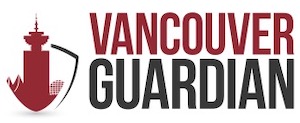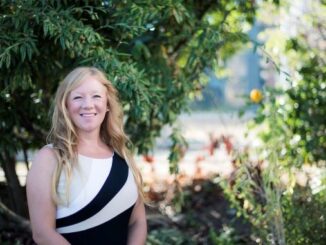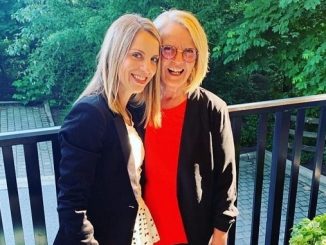Justice for Girls is a non-profit organization based in Vancouver, B.C. that was founded in 1999 in response to the need for girl-specific services. JFG promotes social, economic and environmental justice and an end to violence, poverty and racism in the lives of teenage girls. We caught up with Savanah Norman, Director of Communications and Engagement at Justice for Girls to learn more about what they do.

Describe your charity/non-profit in a few sentences.
Justice for Girls is a non-profit organization and registered charity based in Vancouver, B.C. that was founded in 1999, in response to the need for girl-specific services. JFG promotes social, economic and environmental justice and an end to violence, poverty and racism in the lives of teenage girls. We fight for justice and equality based on the feminist belief that young women in poverty are the experts of their own experiences.
Justice for Girls believes in young women’s leadership and pushes for young women to be at the forefront of designing laws, policies, and programs that affect their lives. Our work is guided by the leadership and experience of numerous young women for whom we have advocated and/or who are or have been part of the organization as staff, interns, volunteers, students or board members.
What problem does it aim to solve?
JFG’s primary areas of action include Advocacy and Policy, Young Women’s Leadership, Indigenous Rights and Environmental Justice, and Public Education and Engagement. Through individual and systemic advocacy, JFG works domestically and internationally to promote the health, equality, and dignity of teenage girls and young women living in poverty. We advance young women’s and girls’ access to justice, education, and employment and strengthen institutional responses to violence against girls. Our advocacy areas also include poverty, child welfare systems, homelessness, prisoner justice, Indigenous rights, access to healthcare and police accountability.
We stand beside young women and provide support and resources to them so that girls can act on their own behalf to create personal and social change. We recognize that girls’ lack of institutional power and credibility (because of discrimination) is a real barrier to young women regardless of their skills, intelligence, or ability to articulate their needs. Justice For Girls uses over twenty-two years of organizational history and knowledge to assist young women in their daily struggles with violence, poverty and racism.
When did you start/join it?
I first started working with Justice for Girls in the spring of 2016. I was 17, attending an alternative school in East Vancouver when I was hired as a part-time intern. Through JFG-paid internships, girls are able to earn high school credits and learn about social policy analysis, criminal justice monitoring, media analysis, public education, community development, and cultivate their leadership skills. Justice for Girls interns have played a vital role in our development, vision, priorities and advocacy over the past two decades.
What made you want to get involved?
Justice for Girls valued me & my experience as a teenage girl, they took me seriously, and they believed in me despite the many educational and personal challenges I had faced. I saw an opportunity to use my lived experience of violence, poverty and addiction to make a difference and advocate on behalf of girls’ human rights.
I was also inspired by my grandmother, Diane Freed, as she was a part of the feminist, anti-violence movement in the 70s and 80s in Vancouver and in the Yukon. She played an instrumental role in opening the first-ever women’s shelter in Dawson City in 1987.
What was the situation like when you started?
When I started, Justice for Girls was in a rebuilding phase, as the Harper Government was really hard on the organization financially. We were so small and had a very limited budget. There was myself and two other girls hired as part-time interns. We met once or twice a week, and since we didn’t have an office space, we used generous volunteer’s spaces, including common areas and living rooms. Despite our limited time and space, we conducted a year-long project with teenage girls, young women and community organizations in Vancouver, B.C. to learn about the realities facing teenage girls living in poverty. The project focused on their experiences within the services and institutions designed to support, protect and educate them, with a particular focus on the education system. We spoke to 51 young women and girls between the ages of 14-24, through individual interviews and focus groups, as well as over 50 community stakeholders and ultimately developed our report: A Space to Thrive.
How has it changed since?
Justice for Girls has grown exponentially over the past 7 years that I’ve been with the organization. We have built our capacity, our community and online presence, as well as our team and board. We have moved into our very own office space to accommodate our growing team and expanding program areas and resources.
With a larger capacity for advocacy, we have engaged in countless projects to promote the rights of girls, including putting forward multiple human rights submissions to the United Nations, regarding the rights of the child, climate justice and Indigenous rights.
JFG has also partnered with UBC health sciences and created professional development workshops and resources on girls’ access to healthcare for medical students, which is ongoing. We’re currently running multiple girls groups in several alternative schools and youth centres, as well as rights education workshops for youth covering a variety of topics including sexual assault, consent and the law.
We’ve had thirteen interns go through our internship program (including myself), and have our current intern working on improving access to justice for girls, with a focus around court processes.
We also have expanded our advocacy and research in rural and remote communities in Northern BC & the Yukon, and are in the process of building relationships with Indigenous communities and youth-serving organizations.
One of our projects in the north (and also in urban areas), is geared towards educating and pushing for policy reform by addressing systemic barriers that make it difficult to recognize and adequately address violence in teen girls’ lives. We’re working with girls from diverse backgrounds in B.C. by listening and using real-life experiences of violence.
Through gaining knowledge and hearing directly from girls, we will couple it with young women’s leadership to then develop strategy with policy recommendations to address barriers that render girls more vulnerable to violence and present solutions for improved responses to violence that are grounded in a human rights framework.
But, I think one of the most needed and exciting changes that we have implemented is relaunching our individual advocacy program. Our individual advocacy program responds to girls aged 12-18 who are in need of individualized support to meet their age and gender-specific needs. We now have a staff lawyer that offers girls legal advocacy services across BC & the Yukon.
As for myself, I’ve held six total different positions since my time at JFG, including a full-time intern, Public Education & Engagement Coordinator and Director of Communications & Development. I’ve been supported and mentored by the amazing women that work beside me. I can say with confidence that Justice for Girls saved my life.
What more needs to be done?
There is so much more to be done and progress to be made. To narrow it down a bit, there is still a major lack of girl-specific programming and resources. The needs and vulnerabilities of teenage girls are unique and complex. Violence against girls remains the biggest barrier to them in their day-to-day lives. Systemic change is desperately needed in all the institutions that affect the lives of girls, such as the child welfare system, the criminal justice system, girls’ prisons, girls’ access to education and more.
Canada needs to step up and take more responsibility in action to address the ongoing genocide of Indigenous women and girls in this country and implement to the calls to justice from the National Inquiry. More funding to organizations like ours must be prioritized. Young women, particularly BIPOC young women, need to have more opportunities to be in leadership roles, where they can affect change, rather than be tokenized to check off a box.
How can our readers help?
Donate! Spread awareness, check out our website, follow us on social media, reshare and like our posts, subscribe to our newsletter, read and share our reports. You can donate through our website. We are working to establish a Justice for Girls center, which will be an exciting hub for young women and teenage girls in Vancouver, offering the sanctuary and support services that girls in poverty need to thrive. All support is greatly appreciated!
Do you have any events coming up?
On International Women’s Day, we’re planning a panel discussion with the Centre for Feminist Legal Studies, to discuss and bring awareness to the link between violence against Indigenous women & girls and resource extraction. Follow us on Instagram, for more information about the events soon to come.
Where can we follow you?
Website | Instagram | Twitter | Facebook | Tiktok
PAY IT FORWARD: What is an awesome local charity that you love?
An awesome local charity that I personally love is Urban Native Youth Association (UNYA) located on East Hastings and Victoria street here in Vancouver. One of our past interns is now working there as a youth worker! UNYA provides Indigenous youth advocacy, preventative and support services that respond to their immediate and long-term needs, including a health clinic, community pantry and safe-space for urban Indigenous youth. UNYA has a similar model as we envision for the JFG center: a one-stop shop.



